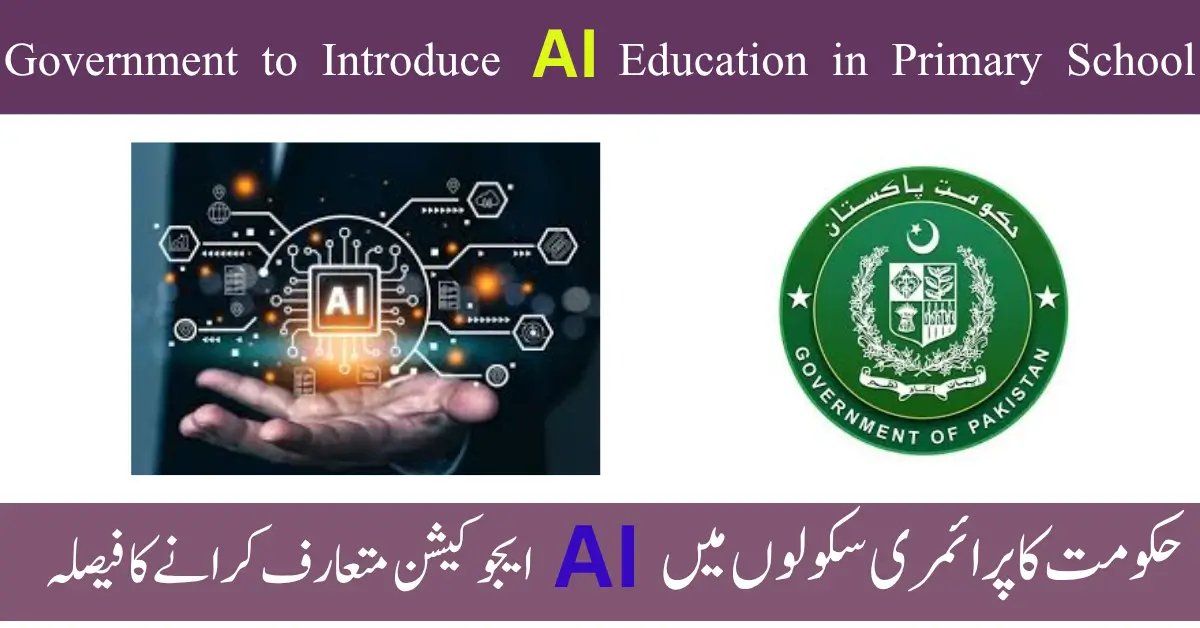AI Education in Primary Schools
The government plans to introduce Artificial Intelligence (AI) education in primary schools. The government has decided to introduce Artificial Intelligence (AI) education at the primary level, taking a major step towards creating an education system compatible with modern technology. This project aims to give children a basic understanding of technology from an early age and prepare them for the demands of the future.
What is Artificial Intelligence?
Artificial Intelligence is a technology that gives computers and machines the ability to think, learn, and solve problems like humans. Today, the use of AI is growing rapidly in sectors such as health, education, agriculture, trade, and security.
Punjab Gov Unveils Rs 3,000 Monthly Ration Subsidy for 1.2 Million Families
A new chapter in educational reforms
According to the Ministry of Education, AI education will be included in the school curriculum in a phased manner. Initially, this project will be started in a few cities or districts under a pilot program, after which its scope will be expanded to primary schools across the country.

Topics covered in the curriculum
The following core topics will be covered in the initial phase:
- Basic understanding of technology
- Initial definition and importance of artificial intelligence
- Simple examples of robots, machine learning, and data
- Problem-solving exercises
- Projects that promote creative and critical thinking
Teacher training
Under this project, teacher training is also being given top priority. The government will train teachers on AI through special workshops and online courses so that they can effectively teach this knowledge to children.
What will be the benefits for children?
- Future-proofing:
AI education will prepare children to face the employment and economic challenges of the future.
- Development of creativity:
Children will be able to work on new ideas and learn the skills to use technology in a positive way.
- Interest in science and mathematics:
AI education will increase students’ interest in mathematics, science and computer subjects.
- Digital Awareness:
Children will be better aware of the risks and benefits of the online world.
Overseas Pakistanis Granted Tax-Free Mobile Registration—But With Limits
Challenges and Concerns
While this is a positive development, it also comes with some challenges:
- Lack of infrastructure in remote areas
- Lack of internet and computer facilities
- Initial resistance from parents and teachers
- Lack of trained teachers
When will the NADRA Mobile Registration Van visit your area?
Conclusion
The world is rapidly entering the digital and technological era, and in this context, a developing country like Pakistan needs to adapt its education system to meet modern requirements. The government’s introduction of AI education at the primary level is a bold and far-sighted step, which will not only prepare children for global competitiveness but also play a significant role in the country’s overall development.
